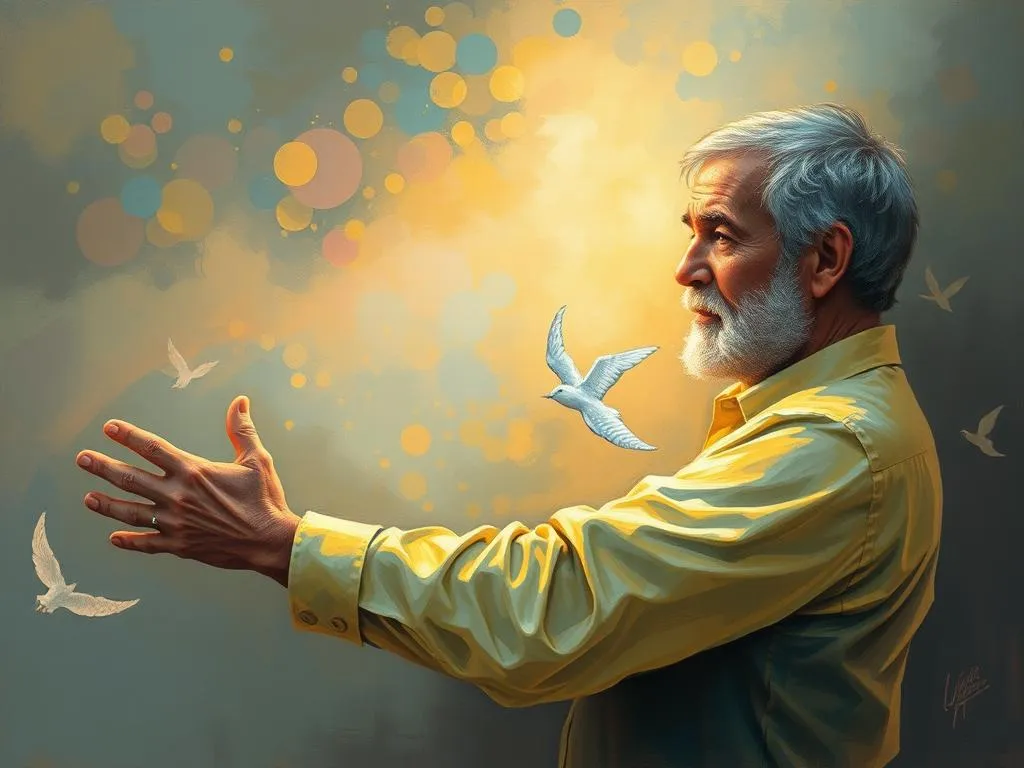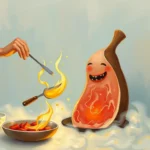
Dreams have long been a source of intrigue and curiosity, captivating the minds of those who seek to understand their deeper meanings. Among the myriad symbols that populate our nocturnal narratives, the image of a father’s arm often emerges, evoking a range of emotions and interpretations. This particular dream symbol resonates with many, as it touches upon themes of protection, support, and authority. In this article, we will delve into the symbolism and meaning of dreaming about a father’s arm, explore various scenarios that may manifest in such dreams, and provide insights on how these dreams can connect to our waking lives.
Symbolism and Meaning
The figure of a father frequently embodies the archetype of a protector or guiding force in our lives. In dreams, the father’s arm symbolizes various aspects, including strength, security, and nurturing. When one dreams of a father’s arm, it can signify a longing for safety or a desire to connect with paternal figures in one’s life.
From a psychological perspective, the father figure often represents authority and discipline, leading to the interpretation that a dream featuring a father’s arm may reflect feelings about one’s own authority or the authority figures that influence our lives. This dream could serve as a prompt for self-examination, urging the dreamer to contemplate their relationship with authority, whether it be familial, societal, or self-imposed.
Additionally, the arm can symbolize action and movement. If the father’s arm is reaching out, it may suggest a desire for connection or support from a fatherly figure. Conversely, if the arm appears to be withdrawn or absent, it may indicate feelings of abandonment or emotional distance. The dynamics of the arm’s position can significantly alter the dream’s interpretation, revealing complex feelings about love, support, and emotional availability.
Key Scenarios and Variations
The context of the dream can vastly influence its interpretation. For instance, a dream where a father’s arm is extended as if to embrace could represent a strong need for reassurance and comfort. This scenario suggests that the dreamer may be seeking guidance or affirmation in their waking life. It can also signify a desire to reconnect with family or to heal past wounds related to paternal relationships.
Conversely, if the dream portrays a father’s arm as being forceful or restrictive, it may symbolize feelings of being controlled or confined by authoritative figures in the dreamer’s life. This could reflect internal struggles with self-identity and autonomy, prompting the dreamer to evaluate how they assert themselves in various situations.
Another variation involves the dreamer being physically supported by a father’s arm during a challenging situation. In this scenario, the arm serves as a metaphor for support during times of difficulty. It may indicate that the dreamer is currently facing challenges in their life and is relying on their inner strength or past experiences shaped by paternal influences to navigate through them.
Dreams can also feature multiple father figures or a blending of paternal influences, leading to a more complex interpretation. For example, if a dream depicts the dreamer interacting with their biological father alongside a father figure from their life (such as a mentor or an influential teacher), this may signify a blending of traits and teachings that the dreamer associates with fatherhood. The arms of these figures may symbolize the merging of support systems, suggesting that the dreamer is drawing strength from various sources.
Real-Life Connections and Takeaways
Understanding the dream about a father’s arm can provide valuable insights into one’s emotional landscape and interpersonal relationships. Readers are encouraged to reflect on their own experiences and feelings towards their father or father figures. Consider questions such as, What role has your father played in your life? How do you perceive authority and support?
These reflections can illuminate how unresolved feelings or current life challenges manifest in dreams. If the dream elicits a sense of warmth and security, it may highlight a healthy bond with paternal figures or a need for nurturing support in waking life. On the other hand, if the dream leaves the dreamer feeling anxious or constrained, it may be an invitation to confront feelings of inadequacy or control imposed by authority figures.
Practical advice for self-reflection includes journaling about the dream and its emotions, exploring how these feelings correlate with real-life situations. Engaging in conversations with trusted individuals about the symbolism of the dream can also help clarify its meaning. Sometimes, sharing our dreams can lead to new insights and revelations.
Moreover, if the dream reflects a desire for connection with a father figure, consider reaching out to those figures in your life. Re-establishing contact or simply expressing gratitude can foster healing and growth. Alternatively, if the dream raises issues of control or restriction, it may be beneficial to assess personal boundaries and the influence of authoritative figures in your life. Recognizing the difference between healthy guidance and overbearing control can empower the dreamer to reclaim their autonomy.
In conclusion, the symbolism of a father’s arm in dreams encompasses a rich tapestry of meanings related to protection, support, authority, and emotional dynamics. By examining the nuances of these dreams, individuals can glean deeper understandings of their relationships and personal journeys. Whether the dream evokes feelings of comfort or prompts questions about control, it serves as a powerful mirror reflecting the complexities of our waking lives. Engaging with these dreams can foster personal growth and a more profound connection with oneself and one’s relationships.
As you reflect on your own dreams involving a father’s arm, consider the emotions they evoke and the messages they may carry. This exploration may lead to greater self-awareness and insight into the intricate dance of relationships and personal identity.







